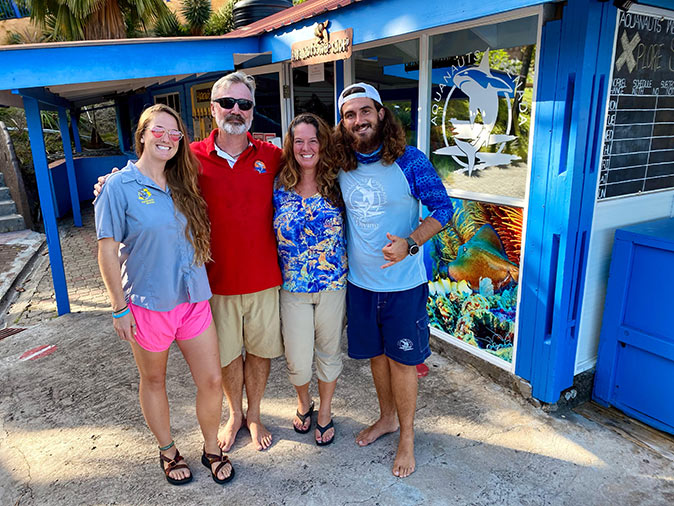
Are you dreaming of a tropical climate, stunning sandy beaches, a vibrant culture, delicious cuisine, and friendly locals? If so, the Caribbean might be the ideal destination for you. With its enjoyable aspects, the Caribbean attracts investors, families, digital nomads, and retirees looking to make a home in a slice of paradise. In this comprehensive guide, we’ll go over everything you need to know about moving to the Caribbean, from what to expect in Caribbean life to the process of applying for citizenship.
Caribbean Life
Life in the Caribbean is diverse, catering to various lifestyles. Whether you’re a digital nomad or relocating for your career, larger islands like the Bahamas and Barbados offer thriving industries in construction, hospitality, and retail. On the other hand, if you’re retiring to the Caribbean, islands like Grenada, St Kitts and Nevis, and St Lucia provide a more laid back island life for calm and rejuvenation.
When considering a move to the Caribbean, it’s essential to think about the available transport systems in your chosen area. With over 7,000 islands, travel between them is often as easy as a short flight. Flights, cruises, ferries, and yachts are all available to help you explore these beautiful islands. Once you’re on an island, you can rent a car or board a bus to navigate your way around.
Moving to the Caribbean
Moving to the Caribbean offers several options to choose from, depending on your preferences and circumstances. Here are a few popular routes:
- Becoming a Digital Nomad
For those seeking a flexible lifestyle, becoming a digital nomad in the Caribbean is an attractive option. You can travel while you work and take advantage of digital nomad visas offered by various countries. Antigua and Barbuda, the Bahamas, and Dominica are great options for pursuing the digital nomad route.
- Obtaining Dual Citizenship
Another way to live and work in the Caribbean is by obtaining dual citizenship. Several Caribbean destinations offer citizenship by investment programs, such as Grenada, St Lucia, St Kitts and Nevis, and Dominica. These programs allow you to invest in the country’s economy and gain citizenship in return.
- Finding Employment or Starting a Business
If you’re interested in advancing your career or starting a business in the Caribbean, there are plenty of opportunities available. Larger islands like the Bahamas and Barbados have thriving industries that provide numerous work opportunities. However, keep in mind that finding employment in certain industries or obtaining a residency permit may be more challenging.
How to Move to the Caribbean
Now that you know what to expect, let’s take a closer look at the steps you can take to make your move to the Caribbean a reality.
Step 1: Identify Your Preferences
Before making the move, it’s important to have a clear idea of what you’re looking for in the Caribbean. Consider the type of area you want to live in, whether you need to be close to schools, or if you prefer a bustling city center. Think about the day-to-day essentials, such as transportation and access to amenities. Additionally, decide whether you want to immerse yourself in the local culture or live among other expats.
Step 2: Conduct Thorough Research
Once you have a clear idea of what you’re looking for, it’s time to conduct thorough research. Start with a general search online and narrow down your options based on your preferences. Explore websites, join Facebook groups, and consult immigration firms to gather valuable information about the areas you can move to and the visa programs you may be eligible for.
Step 3: Seek Advice and Assistance
Talking to others who have already made the move to the Caribbean can provide valuable insights and support. Joining Facebook groups and connecting with expats who have embarked on a similar journey can be a great way to gather advice and information.
Additionally, consider seeking expert guidance from immigration and visa professionals. Lawyers and consultancy firms like Global Citizen Solutions specialize in immigration and can provide expert advice on eligibility requirements, documentation, processing times, and more.
Step 4: Prepare for the Move
Once your move to the Caribbean is organized and confirmed, it’s time to make the necessary preparations. If applicable, sell or rent out your current home and sort out your finances to ensure a smooth transition. Familiarize yourself with the tax rules in the Caribbean and consider how you will furnish your new home. Depending on the type of property you acquire, you may need to decide whether to sell your belongings or bring them with you.
Step 5: Settle into Your New Home
The final step is to book your plane ticket and make the move to your new home in the Caribbean. This is an exciting time as you embark on a new chapter of your life. While it may take some time to adjust, the Caribbean’s breathtaking natural landscapes, wealth of activities, and friendly locals will help you embrace your new environment.
Living in the Caribbean

Once you’re in the Caribbean, you’ll be able to enjoy the many advantages of living in this beautiful region. Here are some highlights:
Art and Culture
The Caribbean is known for its vibrant social and cultural events. Throughout the year, you can immerse yourself in festivities like the BVI Spring Regatta and Sailing Festival, Junkanoo Summer Festival, Trinidad and Tobago Carnival, St Maarten Flavors Appeteaser Week, and St Kitts Music Festival.
Education
If you’re moving to the Caribbean with a family, you’ll find a selection of local, international, and private schools to choose from. Many Caribbean countries have education systems influenced by the British and European systems, with English being the primary language. The region is also home to prestigious universities like the University of the West Indies.
Entertainment Opportunities
The Caribbean offers a wide range of activities for leisure time. From bouldering and hiking to sailing and snorkeling, each island has its own unique attractions. Aruba, Bonaire, and Curacao are renowned for diving and snorkeling, while Dominica and Jamaica boast beautiful waterfalls and natural preserves. The Bahamas is a paradise for deep-sea fishing enthusiasts.
Expat Communities
The Caribbean is home to diverse communities of expats, including digital nomads, long-term travelers, retirees, and families. These communities provide opportunities to make connections, build friendships, and create a sense of belonging.
Local Cuisine
The Caribbean’s cuisine is a delightful fusion of various cultures, resulting in iconic and delicious dishes. From La Bandera Dominica, a flavorful meal of rice and stewed beans and meat, to Oil Down, a mouthwatering Grenadian dish filled with breadfruit, coconut milk, dumplings, callaloo, salted fish and/or meat, and a mix of herbs and spices.
Tax Advantages
One of the significant advantages of relocating to the Caribbean is the favorable tax environment. Many countries in the region offer tax advantages, such as lower or no taxes on capital gains, inheritance, wealth, and income, as well as progressive tax rates. Some Caribbean countries are even considered tax havens. For a more detailed understanding of tax regulations, check out our articles on tax in St Lucia, Vanuatu, and Dominica.
In conclusion, moving to the Caribbean offers a plethora of benefits that can greatly enhance your quality of life. The region’s stunning natural beauty, year-round warm climate, and laid-back lifestyle create an idyllic setting for those seeking a relaxed and rejuvenating environment. The Caribbean’s exquisite beaches, crystal-clear waters, and diverse marine life make it a haven for outdoor enthusiasts and beach lovers alike.
Beyond its scenic wonders, the Caribbean boasts a rich cultural heritage and history. With various opportunities to embrace the cultural diversity found here, thanks to the number of festivals and events that occur throughout the year, you’re sure to find your days filled with exciting adventures. Furthermore, the Caribbean’s welcoming and friendly communities foster a sense of belonging, making it easier for newcomers to integrate and build meaningful connections in this beautiful location.
If you would like to learn more about the Caribbean, check out our articles on Americans relocating to St Lucia, moving to Dominica, living in Antigua as an expat, Americans relocating to St Kitts and Nevis, moving to Grenada from the US, and Caribbean immigration services.
Frequently Asked Questions about Moving to the Caribbean
- Which Caribbean island is easiest to immigrate to?
The ease of immigration depends on various factors, including qualifications, budget, quality of life, and more. Generally, Antigua and Barbuda, Dominica, Grenada, St Lucia, and Trinidad and Tobago are considered accessible Caribbean countries for obtaining citizenship. - What is the safest Caribbean island to move to?
When it comes to safety, some of the safest Caribbean islands include Antigua and Barbuda, Anguilla, The British Virgin Islands, the Cayman Islands, Martinique, Montserrat, and St Barts.
For a comprehensive overview of the best places to retire in the Caribbean, don’t forget to check out our article.
Remember, moving to the Caribbean is an exciting adventure filled with endless possibilities. As you embark on this journey, keep in mind that each island has its unique charm and lifestyle. Take the time to explore, immerse yourself in the local culture, and build lasting memories in your new Caribbean home.








